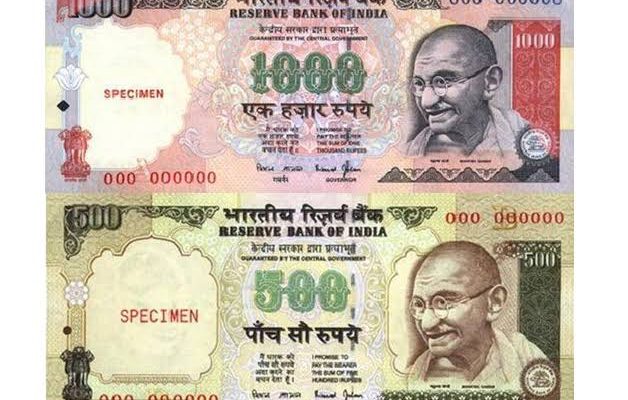From Our Bureau
NEW DELHI:The Supreme Court on Monday upheld the decision of the Central government taken in 2016 to demonetise the old currency notes of Rs 500 and Rs 1000 denominations.
A five-judge Constitution bench jeaded by Justice Syed Abdul Nazeer dismissed by 4-1 verdict a batch of petitions the decision, being the Executive’s economic policy, cannot be reversed. A constitution bench headed by Justice S.A. Nazeer and comprising Justices B R Gavai, A S Bopanna, V Ramasubramanian and B V Nagarathna pronounced the judgment. Justice Nagarathna was the lone dissenter.
A majority judgment pronounced by Justice Gavai said: “We hold that there was a reasonable nexus to bring such a measure and we hold that the demonetiation was not hit by the doctrine of proportionality.”
It said the decision cannot be faulted merely because the proposed emanated from the Centre and noted that it had consultation with the RBI for six months. It said it is not relevant whether the objective behind the decision was achieved or not. It junked all 58 pleas against note ban, holding that the demonetisation does not suffer from any Consstitutional flaws.
“There was consultation between the Centre and the RBI on before demonetisation. There was a reasonable nexus to bring such a measure, and we hold that the doctrine of proportionality did not hit demonetisation.”
The apex court had reserved its judgments on the batch of 58 petitions on December 7.Earlier, it had asked the Centre and Reserve Bank of India to place before it the records pertaining to the 2016 demonetisation decision in a sealed envelope.
Holding that it has the power to examine the manner in which the decision for demonetisation was taken, the apex court said “the judiciary cannot fold its hands and sit just because it is an economic policy decision.” Its came when the Reserve Bank of India counsel made the submission that judicial review cannot apply to economic policy decisions.
The RBI had told the apex court about the objective of the demonetisation policy to curb black money and fake currencies.
Attorney General R Venkatramani had said that the economic policy of demonetisation was connected to a social policy where three evils are attempted to be addressed.
Justice Nagarathna was the only dissenting judge on the Bench, raising three major points for her variance with the majority verdict. “The proposal originated from the Centre and the opinion of the RBI was sought. Such an opinion given by the RBI cannot be construed as “recommendation” under Section 26(2) of the RBI Act,” she said.
“No independent application of mind by RBI; only opinion sought which cannot be said to be the recommendation,” she said, adding that the scrapping of Rs 500 and Rs 1,000 notes was required to be done througha legislation in Parliament and not via a gazette notification.
She referred to very harsh situations for the citizens, all the more reason why there should have been a discussion in Parliament before implementing it.However, she added that the demonetisation was well-intended and its object were to combat the depraved practices of black money, terror funding and other such practices.





